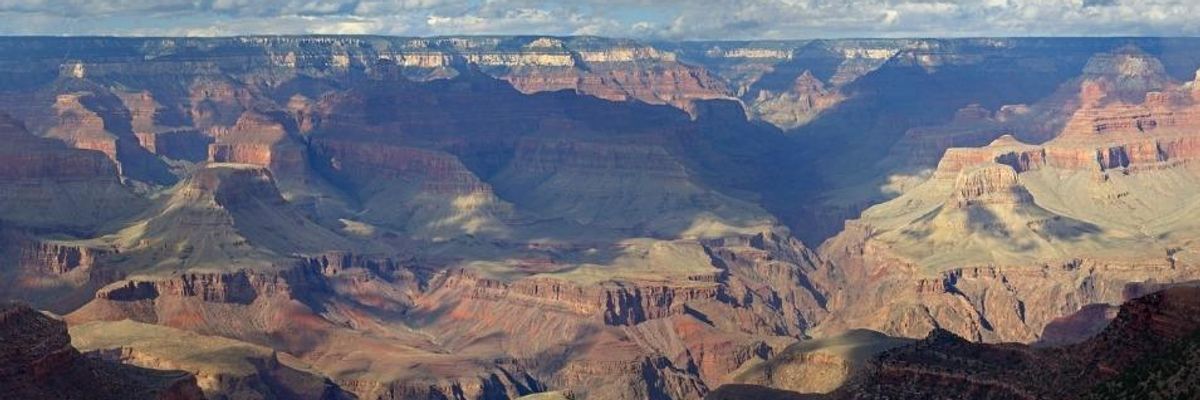The Trump administration was accused on Thursday of moving to unleash "irreversible harm" on the country's environment after releasing a proposal for how to boost "the entire U.S. nuclear enterprise" including by reviving domestic uranium mining.
"Rather than try to protect people and their health, the Trump administration is jumping in with plans to prop up this dirty, dying industry," said Geoff Fettus, a senior attorney for Natural Resources Defense Council.
The proposal is laid out in a document released Thursday entitled "Restoring America's Competitive Nuclear Energy Advantage." The long-awaited recommendations come from the national Nuclear Fuel Working Group, a panel President Donald Trump established last year.
Energy Secretary Dan Brouillette, in a statement announcing the strategy, claimed it was "a matter of national security" to "take bold steps to preserve and grow the entire U.S. nuclear energy enterprise."
The strategy calls for the U.S. government to:
- "Take bold action to revive and strengthen the uranium mining industry, support uranium conversion services, end reliance on foreign uranium enrichment capabilities, and sustain the current fleet, removing strategic vulnerabilities across the nuclear fuel cycle and restoring a world-class workforce to provide benefits to the U.S. and to compete in the international market."
- "Leverage American technological innovation and advanced nuclear Research, Development, and Demonstration (RD&D) investments to accelerate technical advances and regain American nuclear energy leadership"; and
- "Move into markets currently dominated by Russian andChinese State Owned Enterprises (SOE) and recover our position as the world leader in exporting best-in-class nuclear energy technology, and with it, strong non-proliferation standards."
Reutersreported that the strategy would also allow "the Nuclear Regulatory Commission to deny imports of certain uranium supplies from Russia and China for national security purposes."
The document also suggested an attack on a federal environmental law could be needed to boost uranium mining:
Throughout the regulatory process, National Environmental Policy Act (NEPA) analysis is required, in addition to other environmental or land preservation analyses. These procedures and processes can take years to successfully navigate, which equates to higher project risk and higher permitting and licensing costs. Efforts to streamline governmental and regulatory processes have the potential to increase the competitiveness of all new uranium production facilities.
The Center for Biological Diversity joined NRDC in criticizing the plan, expressing particular concern over how domestic uranium mining could "industrialize public lands" and wreak ecological havoc.
"These dangerous recommendations invite more deadly uranium pollution in rural communities and places like Grand Canyon National Park," said Taylor McKinnon, a campaigner with the conservation group.
"Every federal dollar wasted on this effort is a dollar stolen from cleaning up the industry's toxic pollution legacy in the Navajo Nation and across the West," he continued. "It's despicable to risk irreversible harm to spectacular wild places by propping up uranium companies that can't compete in global markets."
Other public lands could be at risk as well, said The Wilderness Society.
"Enriching special interests with taxpayer resources so they can plunder national treasures like Bears Ears and the Grand Canyon will harm our land, water, and public health," said America Fitzpatrick, senior representative of The Wilderness Society. "To do so in the face of a global pandemic is an abuse of public trust."

